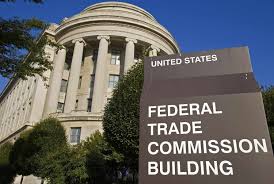The Federal Trade Commission (FTC) has issued a warning to Google, cautioning that the company could face investigation and enforcement action over alleged partisan practices in Gmail’s spam filtering system.
In a formal letter to Google CEO Sundar Pichai, FTC Chair Andrew Ferguson raised concerns that Alphabet Inc., Google’s parent company, may be engaging in unfair or deceptive acts or practices in violation of the Federal Trade Commission Act. Ferguson referenced recent reports indicating that Gmail spam filters have disproportionately flagged Republican fundraising emails as “spam” or “dangerous,” while allowing similar Democratic solicitations to pass through to users.
“Alphabet’s alleged partisan treatment of comparable messages or messengers in Gmail to achieve political objectives may violate both prohibitions under the FTC Act,” Ferguson wrote. “If Gmail’s filters prevent Americans from receiving political speech or donating as they see fit, these practices may cause significant harm to consumers.”
The warning comes in the wake of an August 13 New York Post report that alleged Gmail targeted Republican fundraising messages while failing to block similar Democratic outreach. Ferguson also noted that public comments submitted during the FTC’s request for information on technology platform censorship have raised similar concerns of political bias in Gmail’s administration.
Republican lawmakers previously urged the FTC to investigate what they described as Google’s “unlawful suppression” of conservative campaign emails. In May, the National Republican Congressional Committee and the National Republican Senatorial Committee both pressed the agency for action.
Google has not yet responded to the FTC’s letter.
Ferguson emphasized that under the FTC Act, representations are considered deceptive if they mislead consumers under reasonable circumstances, while practices are considered unfair if they cause unavoidable, substantial harm not outweighed by consumer benefits or competition.
The Commission signaled that failure to address these concerns could result in a formal investigation and potential enforcement measures.



